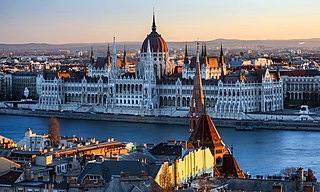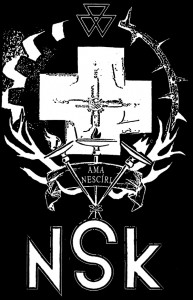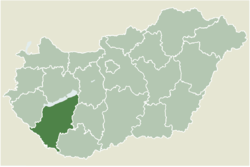
Hungary is a landlocked country in Central Europe. Spanning 93,030 square kilometres (35,920 sq mi) of the Carpathian Basin, it is bordered by Slovakia to the north, Ukraine to the northeast, Romania to the east and southeast, Serbia to the south, Croatia and Slovenia to the southwest, and Austria to the west. Hungary has a population of 9.5 million, mostly ethnic Hungarians and a significant Romani minority. Hungarian, a language belonging to the Ugric branch of the Uralic language family, is the official language, and Budapest is the country's capital and largest city.

Transylvania is a historical and cultural region in Central Europe, encompassing central Romania. To the east and south its natural border is the Carpathian Mountains and to the west the Apuseni Mountains. Broader definitions of Transylvania also include the western and northwestern Romanian regions of Crișana and Maramureș, and occasionally Banat. Historical Transylvania also includes small parts of neighbouring Western Moldavia and even a small part of south-western neighbouring Bukovina to its north east. The capital of the region is Cluj-Napoca.

Budapest is the capital and most populous city of Hungary. It is the ninth-largest city in the European Union by population within city limits and it was the largest city on the Danube river; today it is the second largest one. The city has an estimated population of 1,752,286 over a land area of about 525 square kilometres. Budapest, which is both a city and municipality, forms the centre of the Budapest metropolitan area, which has an area of 7,626 square kilometres and a population of 3,303,786. It is a primate city, constituting 33% of the population of Hungary.

Neue Slowenische Kunst is a political art collective that formed in Slovenia in 1984, when the Socialist Republic of Slovenia was part of Socialist Federal Republic of Yugoslavia. NSK's name was chosen to reflect the theme in its works of the complicated relationship Slovenes have had with Germans. The name of NSK's music wing, Laibach, is also the German name of the Slovene capital Ljubljana. The name created controversy because some felt it evoked memories of the Nazi annexation of Slovenia during the Second World War. It also refers to Slovenia's previous seven centuries as part of the Habsburg monarchy.

Debrecen is Hungary's second-largest city, after Budapest, the regional centre of the Northern Great Plain region and the seat of Hajdú-Bihar County. A city with county rights, it was the largest Hungarian city in the 18th century and it is one of the Hungarian people's most important cultural centres. Debrecen was also the capital city of Hungary during the revolution in 1848–1849. During the revolution, the dethronement of the Habsburg dynasty was declared in the Reformed Great Church. The city also served as the capital of Hungary by the end of World War II in 1944–1945. It is home to the University of Debrecen.

Uzhhorod is a city and municipality on the Uzh River in western Ukraine, at the border with Slovakia and near the border with Hungary. The city is approximately equidistant from the Baltic, the Adriatic and the Black Sea (650–690 km) making it the most inland city in this part of Europe. It is the administrative center of Zakarpattia Oblast (region), as well as the administrative center of Uzhhorod Raion (district) within the oblast. Population: 115,449.

Nyíregyháza is a city with county rights in northeastern Hungary and the county capital of Szabolcs-Szatmár-Bereg. With a population of 118,001, it is the seventh-largest city in Hungary and the second largest in the Northern Great Plain region. Its development has been ongoing since the 18th century, making it the economic and cultural center of the region. Nyíregyháza Zoo, with over 500 species, is recognized throughout Europe.

Somogy is an administrative county in present Hungary, and also in the former Kingdom of Hungary.
IRWIN is a collective of Slovenian artists, primarily painters, and an original founding member of Neue Slowenische Kunst (NSK).

Sângeorgiu de Pădure is a town in Mureș County, Transylvania, Romania.

Ville-sur-Ancre is a commune in the Somme department in Hauts-de-France in northern France.

Ribemont-sur-Ancre is a commune in the Somme département in Hauts-de-France in northern France.

Bratislava, is the capital and largest city of Slovakia and the fourth largest of all cities on Danube river. Officially, the population of the city is about 475,000; however, some sources estimate it to be more than 660,000—approximately 140% of the official figures. Bratislava is in southwestern Slovakia at the foot of the Little Carpathians, occupying both banks of the River Danube and the left bank of the River Morava. Bordering Austria and Hungary, it is the only national capital to border two sovereign states.
Inke Arns is a German curator and theorist known for her works focusing on media arts.
Tartar Invasion is a 1917 Hungarian drama film directed by Michael Curtiz.
Inke van Wyk is a South African former field hockey player who competed in the 2000 Summer Olympics.
Stars of Eger is a 1968 Hungarian-Bulgarian historical film directed by Zoltán Várkonyi and starring Imre Sinkovits, György Bárdy and István Kovács. It is an adaptation of the 1899 novel Eclipse of the Crescent Moon by Géza Gárdonyi. An earlier silent film adaptation, Stars of Eger, was made in 1923. "Stars of Eger" is a direct translation of the original Hungarian title of the novel.

The Frozen Child is a 1921 Hungarian silent drama film directed by Béla Balogh and starring Mária Szepes, Ferenc Szécsi, Anna Breznay and Viktor Galánthay. It is one of the few surviving Hungarian films of the early 1920s. It was unusual for its depiction of poverty in Hungary at a time when this was discouraged or censored by the authorities.

Csurgó is a district in south-western part of Somogy County, Hungary. Csurgó is also the name of the town where the district seat is located. The district is in the Southern Transdanubia Statistical Region.

The 2nd constituency of Somogy County is one of the single member constituencies of the National Assembly, the national legislature of Hungary. The constituency standard abbreviation: Somogy 02. OEVK.



















